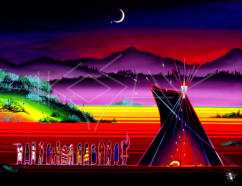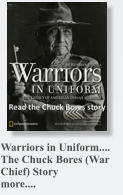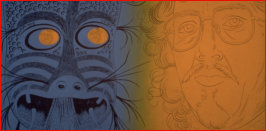


Copyright (C) 2011-2020 Lipan Apache Band of Texas, All Rights Reserved for Terms and Conditions click here.
WELCOME NDÉ “the people””Apache”
Lipan Apache Band of Texas Official Website.
The Lipan Apache Band of Texas membership consist of over 745 members and is composed of the Cúelcahén Ndé (People of the Tall Grass), Tú é diné Ndé (Tough People of the Desert), Tú sìs Ndé (Big Water People), Tas steé be glui Ndé (Rock Tied to Head People), Buií gl un Ndé (Many Necklaces People), and Zuá Zuá Ndé (People of the Lava Beds) that have continuously lived in Texas prior to First Contact 1528.The Lost Ones
The Lipan Apache Band has considered Mather a "lost one" and did not know his whereabouts for 123 years. Mather was taken from the Lipan Apache Band in 1877 when it was attacked by Col. Ronald McKenzie's Fourth U.S. Calvary unit just south of the border between the United States and Mexico. He was sent to the Carlisle Indian Industrial school to be assimilated into a western lifestyle, and died in Carlisle as a teenager in 1888. The Lipan Apache Band referred to Mather and Kesetta Roosevelt, his older sister who was taken from Texas with him, as lost ones for over 100 years. Then, a guest professor at Dickinson College contacted the band with Mather and Roosevelt's story. Jacqueline Fear-Segal, an American studies professor at the University of East Anglia in Norwich, England, was doing research for her book "The White Man's Club: Schools, Race, and the Struggle of Indian Acculturation" while at Dickinson in 2000 during a faculty exchange program. -RICK SELTZER, The Patriot-NewsThe Lost Ones (Hidden Histories)
by Michaela MacColl (Author)
Despite her father’s warnings that their tribe is always in danger, Casita, a twelve- year-old Lipan Apache girl, has led a relatively peaceful life with her tribe in Mexico, doing her daily chores and practicing for her upcoming Changing Woman ceremony, in which she will officially become a woman of the tribe. But the peace is shattered when the U.S. Cavalry invades and brutally slaughters her people. Read more here… Click here to purchase the book. This video was published on Apr 13, 2016"Mackenzie's Raid" Nde'
by: 7 Trees Video by: MaNde' Gonzales Portales The Credits can be found on YouTube.Lipan Apache culture
Richard and Anita share a passion for passing on there knowledge of the Lipan Apache culture and history to the thousands of children who have attended there presentations, read more…
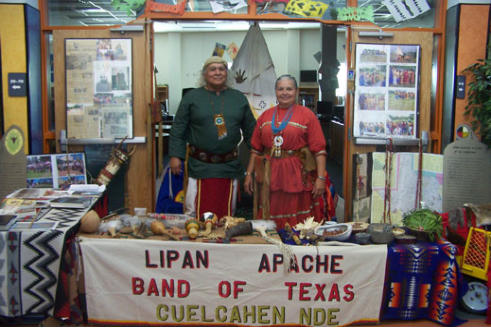


Cuelgas de Castro was a Lipan Apache that was chosen to lead the Apaches and as time
went on other Apache leaders such as, Juan and Ramon Castro, were asked for their
assistance in protection from unlawful settlers or other warring Indians that had been
displaced by the United States government in the east. more…

History of Lipan Apache
Spanish Missionaries gave Lipan Apache Band Chief Cuelgas the name Cuelgas de Castro. They have estimated that Cuelgas was born in the year 1762. Cuelgas de Castro was born in the Lipan Apache Band Village on the river banks between the San Saba and Read more.... Published on Oct 1, 2014 Cihuapilli Rose Amador LeBeau interviews Richard Gonzales (Lipan Apache Chief) & Anita Tahityé (Lipan Apache) on Native Voice TVLipan Apache Traditional Art
Many Lipan children never knew about their true heritage and culture. Parents were raised by their grandparents as Mexicans or in some cases as Caucasian in a very strict way in fear of being sought out and killed. Click here for more…Lipan Apache Band of Texas - Margo Tamez
speaks on KRWG NEWS Fronteras hosted by Edmundo Resendez. He discusses with
Margo Tamez a member of the Lipan Apache Band of Texas about her experiences
growing up in Texas as a Native American.




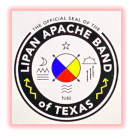

Traditions of service: Master Sergeant and
Lipan Apache War Chief Chuck Boers
Thank you for your military service to the United States, and thank you for being a member of the Advisory Committee for the National Native American Veterans Memorial, which will be built on the grounds of the museum. May I ask you to introduce yourself and to give us your Native name and its English translation? My name is Johancharles Van Boers, and my nickname is Chuck. My Apache name is Nant’a ’e’e. It means Warrior Number 2. Read more: http://www.smithsonianmag.com/ On mid-tour leave from Operation Iraqi Freedom, Sergeant First Class Chuck Boers carries in the eagle staff at the Shenandoah Powwow, 2004. (Picture courtesy of Chuck Boers)NOTICE: Lipan Apache Band ID cards click here!
Lineal descendants of Lipan Apache Band of Texas citizens may enroll by
contacting our Enrollment Officer, for contact information click here!
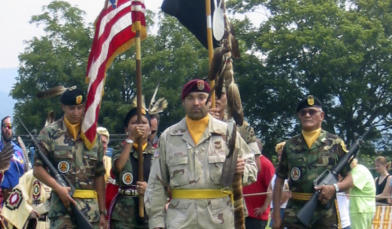




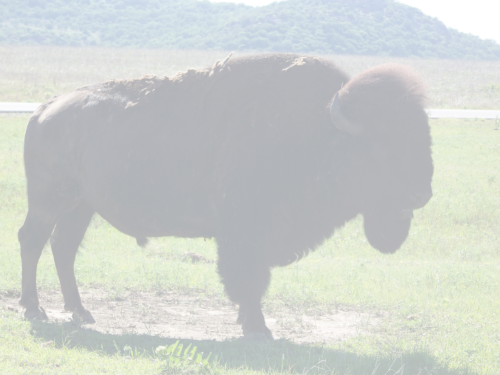
THE
BUFFALO
A TREATY OF COOPERATION,
RENEWAL AND RESTORATION
Since time immemorial, hundreds of generations of the first peoples of
the FIRST NATIONS of North America have come and gone since before
and after the melting of the glaciers that covered North America. For
those generations, BUFFALO has been our relative. BUFFALO is part of us
and WE are part of BUFFALO culturally, materially, and spiritually. Our on-
going relationship is so close and so embodied in us that Buffalo is the
essence of our holistic eco-cultural life-ways. Read more at
https://www.texastribalbuffaloproject.org/

Texas Tribal Buffalo Project
@TexasTribalBuffaloProject · Agriculture

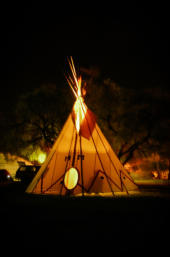

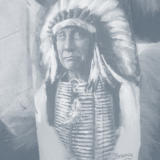


©
Copyright (C) 2011-2023 Lipan Apache Band of Texas,
All Rights Reserved for Terms and Conditions click here.
WELCOME NDÉ “the people””Apache”
Lipan Apache Band of Texas Official
Website.
The Lipan Apache Band of Texas membership consist of over 745 members and is composed of the Cúelcahén Ndé (People of the Tall Grass), Tú é diné Ndé (Tough People of the Desert), Tú sìs Ndé (Big Water People), Tas steé be glui Ndé (Rock Tied to Head People), Buií gl un Ndé (Many Necklaces People), and Zuá Zuá Ndé (People of the Lava Beds) that have continuously lived in Texas prior to First Contact 1528.The Lost Ones
The Lipan Apache Band has considered Mather a "lost one" and did not know his whereabouts for 123 years. Mather was taken from the Lipan Apache Band in 1877 when it was attacked by Col. Ronald McKenzie's Fourth U.S. Calvary unit just south of the border between the United States and Mexico. He was sent to the Carlisle Indian Industrial school to be assimilated into a western lifestyle, and died in Carlisle as a teenager in 1888. The Lipan Apache Band referred to Mather and Kesetta Roosevelt, his older sister who was taken from Texas with him, as lost ones for over 100 years. Then, a guest professor at Dickinson College contacted the band with Mather and Roosevelt's story. Jacqueline Fear-Segal, an American studies professor at the University of East Anglia in Norwich, England, was doing research for her book "The White Man's Club: Schools, Race, and the Struggle of Indian Acculturation" while at Dickinson in 2000 during a faculty exchange program. -RICK SELTZER, The Patriot-NewsThe Lost Ones (Hidden Histories)
by Michaela MacColl (Author)
Despite her father’s warnings that their tribe is always in danger, Casita, a twelve-year-old Lipan Apache girl, has led a relatively peaceful life with her tribe in Mexico, doing her daily chores and practicing for her upcoming Changing Woman ceremony, in which she will officially become a woman of the tribe. But the peace is shattered when the U.S. Cavalry invades and brutally slaughters her people. Read more here… Click here to purchase the book. This video was published on Apr 13, 2016"Mackenzie's Raid" Nde'
by: 7 Trees Video by: MaNde' Gonzales Portales The Credits can be found on YouTube.



Spanish Missionaries gave Lipan
Apache Band Chief Cuelga the name
Cuelga de Castro.

History of Lipan Apache
Spanish Missionaries gave Lipan Apache Band Chief Cuelga the name Cuelga de Castro. They have estimated that Cuelga was born in the year 1762. Cuelga de Castro was born in the Lipan Apache Band Village on the river banks between the San Saba and Read more.... Many current generation Lipan Apache children did not know of their true heritage and yet deep within their subconscious it came out in other various ways. One of which is art. It truly showed who they were. For some, traditional art brought out unknowingly, their true heritage, of who they were. Here you will find just a few of our Lipan Apache member’s traditional artwork. Click here for more…

ndigenous American Art by
Emmanuel C. Montoya
Lipan Apache Band of Texas member ID cards
…more information?
Lineal descendants of Lipan Apache Band of Texas citizens may enroll
by contacting our Enrollment Officer, for contact information click
here!.
Traditions of service: Master
Sergeant and Lipan Apache
War Chief Chuck Boers
Thank you for your military service to the United States, and thank you for being a member of the Advisory Committee for the National Native American Veterans Memorial, which will be built on the grounds of the museum. May I ask you to introduce yourself and to give us your Native name and its English translation? My name is Johancharles Van Boers, and my nickname is Chuck. My Apache name is Nant’a ’e’e. It means Warrior Number 2. Read more: http://www.smithsonianmag.com/ Lipan Apache Band of Texas - Margo Tamez speaks on Fronteras hosted by Edmundo Resendez. He discusses with Margo Tamez a member of the Lipan Apache Band of Texas about her experiences growing up in Texas as a Native American.





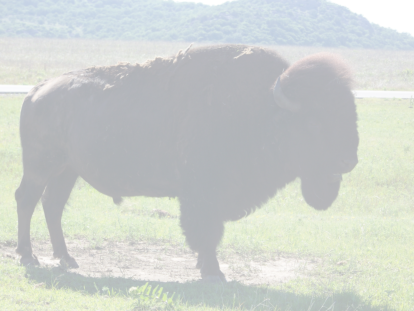
THE
BUFFALO
A TREATY OF COOPERATION,
RENEWAL AND RESTORATION
Since time immemorial, hundreds of generations of the first peoples of
the FIRST NATIONS of North America have come and gone since before
and after the melting of the glaciers that covered North America. For
those generations, BUFFALO has been our relative. BUFFALO is part of us
and WE are part of BUFFALO culturally, materially, and spiritually. Our on-
going relationship is so close and so embodied in us that Buffalo is the
essence of our holistic eco-cultural life-ways. Read more at
https://www.texastribalbuffaloproject.org/

